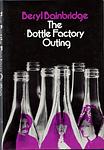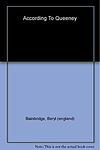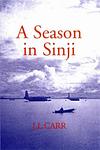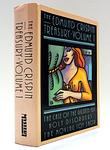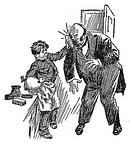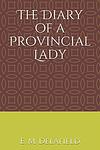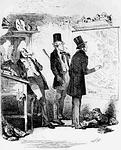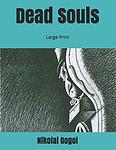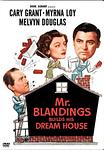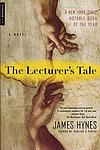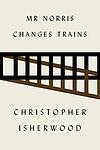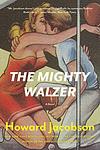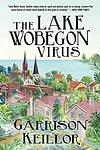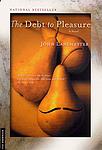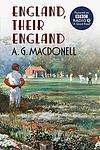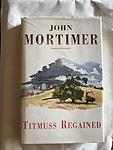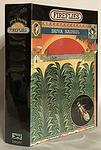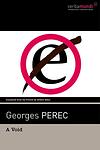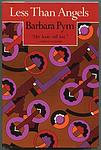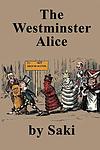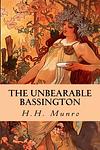1000 Novels Everyone Must Read
This is one of the 286 lists we use to generate our main The Greatest Books list.
-
Lucky Jim by Kingsley Amis
"Lucky Jim" is a comic novel that follows the life of Jim Dixon, a young and disillusioned lecturer at a provincial British university. Struggling with his job and his pretentious boss, Dixon navigates through a series of humorous and often absurd situations, including a disastrous public lecture and a chaotic weekend at his boss's house. The novel satirizes the snobbishness and hypocrisy of the academic world, and explores themes of class, ambition, and the struggle to find personal authenticity in a conformist society.
-
Money by Martin Amis
"Money" is a darkly humorous novel that follows the life of John Self, a hedonistic, self-destructive director of commercials, as he navigates the excesses and depravities of 1980s New York and London. His life is filled with overindulgence in food, alcohol, drugs, and women, leading to a downward spiral of self-destruction. The novel is a satire on the excesses of capitalism and the obsession with wealth and materialism, and it also explores themes of identity, self-loathing, and the destructive power of addiction.
-
The Information by Martin Amis
This book delves into the complexities of friendship, rivalry, and the pursuit of success within the literary world. It centers around two friends, one who has achieved fame and fortune as a novelist and the other who struggles with his own writing career, feeling overshadowed and envious. The narrative explores the darker sides of ambition, betrayal, and the quest for recognition, weaving a tale that examines the personal and professional dynamics between the two men. As the story unfolds, it reveals the lengths to which the struggling writer will go to reclaim a sense of self-worth and success, setting the stage for a compelling exploration of the human psyche and the often tumultuous world of literary fame.
-
The Bottle Factory Outing by Beryl Bainbridge
The novel is a darkly comic tale of two women, Brenda and Freda, who work in a wine-bottling factory in 1970s London. Their lives are filled with tedious work, petty squabbles, and dreams of romance. Brenda is a quiet, passive woman who is trying to escape from her abusive husband, while Freda is a large, boisterous woman who has an unrequited love for their boss. The story takes a twisted turn when a company outing to the countryside results in a murder, leaving the women to deal with the repercussions.
-
According To Queeney by Beryl Bainbridge
This novel offers a vivid portrayal of 18th-century England through the lens of an unconventional relationship between a celebrated literary figure and the Thrale family, particularly focusing on the youngest daughter, Queeney. The narrative, rich in historical detail, explores the complexities of human connections, the intricacies of family dynamics, and the poignant moments that define our understanding of love and friendship. Through Queeney's eyes, readers are invited into the intimate world of intellectual and social elites, witnessing the blend of affection, ambition, and the quest for intellectual companionship that characterizes the era. The book masterfully intertwines factual history with fiction, providing a nuanced exploration of the period's cultural and social mores.
-
Flaubert's Parrot by Julian Barnes
The novel centers around a retired doctor's obsession with the life and works of Gustave Flaubert, a 19th-century French writer. The doctor's fascination leads him on a quest to find a stuffed parrot that once belonged to the writer. The novel is a blend of biography, literary criticism, and personal memoir, and it explores themes such as the nature of art and the difficulties of interpreting the past.
-
A History Of The World In 10 1/2 Chapters by Julian Barnes
This book presents an unconventional and imaginative exploration of world history, weaving together a series of narratives that span different epochs, from the biblical story of Noah's Ark to the aftermath of the Chernobyl disaster. Through a blend of fact, fiction, and speculative thought, the chapters delve into various themes such as love, survival, and the nature of historical truth. Employing a variety of styles and perspectives, including that of a woodworm, the narrative challenges traditional historical narratives and invites readers to question the subjective nature of history and the stories we are told. This inventive approach to storytelling offers a unique and reflective look at humanity's past, present, and future.
-
Augustus Carp, Esq. By Himself by Henry Howarth Bashford
This satirical novel presents itself as the autobiography of Augustus Carp, Esq., a self-proclaimed example of moral virtue and humility, though in reality, he is anything but. The narrative humorously exposes Carp's hypocrisy and self-righteousness as he navigates through various episodes of his life, critiquing others while remaining blissfully unaware of his own glaring faults. Written under a pseudonym, the book cleverly critiques early 20th-century British society, poking fun at moral pretensions and the social mores of the time through the deluded perspective of its pompous protagonist.
-
Molloy by Samuel Beckett
"Molloy" is a complex and enigmatic novel that follows the journey of its eponymous character, an elderly, disabled vagabond, who is tasked with finding and killing a certain person. The narrative is split into two parts: the first is told from Molloy's perspective as he navigates his way through a strange and often hostile world, while the second follows a detective named Moran who is assigned to find Molloy. The novel is renowned for its challenging narrative structure, its bleak and absurdist humor, and its profound exploration of themes such as identity, existence, and the human condition.
-
Zuleika Dobson by Max Beerbohm
"Zuleika Dobson" is a satirical novel set at Oxford University, where the beautiful Zuleika, a conjurer by profession, arrives and captivates the male population, including the Duke of Dorset. The Duke falls madly in love with her, but she remains indifferent to his feelings. In a tragic twist, the Duke decides to commit suicide to prove his love, starting a chain reaction among other male students. The novel is a critique of Edwardian Oxford and the foolishness of falling victim to unrequited love.
-
The Adventures of Augie March by Saul Bellow
"The Adventures of Augie March" is a novel set in Chicago during the Great Depression. The story follows the life of Augie March, a poor but spirited boy growing up in a broken home, as he navigates his way through life. The narrative explores his various jobs, relationships, and adventures, as he constantly seeks his identity and place in the world. His journey is marked by a series of encounters with different people and experiences, each shaping him in unique ways.
-
The Uncommon Reader by Alan Bennett
This charming novella explores the whimsical scenario in which the Queen of England becomes an avid reader, a hobby that begins quite by accident when she stumbles upon a mobile library parked at Buckingham Palace. Her newfound passion for books leads her on a journey of self-discovery, changing her outlook on life and her role as a monarch. As her reading list grows, so does her questioning of the status quo, much to the dismay of her courtiers. The narrative humorously and poignantly examines the transformative power of literature and its ability to inspire introspection, empathy, and an insatiable curiosity about the world.
-
Queen Lucia by E. F. Benson
This book is the first in a series that humorously explores the social dynamics and petty rivalries within the small English village of Riseholme. The narrative centers around Lucia Lucas, a pretentious and scheming woman who considers herself the cultural and social queen of her community. With her impeccable taste and flair for dramatics, Lucia skillfully maneuvers through village politics and social events, always aiming to assert her dominance and sophistication. However, her reign is challenged by the arrival of new residents and the shifting allegiances of her fellow villagers, leading to a series of comedic mishaps and Lucia's desperate attempts to maintain her status. The story is a delightful satire of the pretensions and idiosyncrasies of provincial English life in the early 20th century.
-
The Ascent Of Rum Doodle by W. E. Bowman
This book is a satirical take on mountaineering memoirs, chronicling the humorous adventures of a team of British explorers as they attempt to conquer the fictional peak of Rum Doodle in the Himalayas. Led by the inept but optimistic narrator, the expedition faces a series of absurd obstacles and challenges, from navigational blunders and bizarre illnesses to the antics of their porters and the peculiarities of their own team members. Through its parody of the overly serious and self-congratulatory nature of exploration narratives, the novel delivers a delightful blend of comedy and adventure, poking fun at the eccentricities and follies of mountaineering culture.
-
A Good Man In Africa by William Boyd
This novel is a darkly comedic tale set in the fictional West African country of Kinjanja, where we follow the misadventures of Morgan Leafy, a morally ambiguous British diplomat. Struggling with his own vices, bureaucratic absurdities, and the complexities of colonial politics, Leafy's life spirals out of control as he attempts to navigate a series of personal and professional crises. Through a blend of satire and tragedy, the narrative explores themes of corruption, power, and the human condition, presenting a vivid, if not always flattering, picture of life in post-colonial Africa.
-
The History Man by Malcolm Bradbury
The novel is a satirical portrayal of academic life in the 1970s, focusing on Howard Kirk, a radical sociology lecturer at a British university. As a self-proclaimed "history man," Kirk manipulates events and people around him to align with his progressive ideologies, all while navigating the complexities of campus politics, sexual liberation, and intellectual debates. Through Kirk's character and the vibrant cast surrounding him, the book critically examines the era's social, political, and academic climates, revealing the contradictions and challenges of living according to rigid ideological principles.
-
No Bed For Bacon by Caryl Brahms, S. J. Simon
This book is a comedic romp through Elizabethan England, where historical figures and fictional characters collide in a series of misadventures. At the heart of the story is the quest for a bed promised to Sir Walter Raleigh by Queen Elizabeth herself, which becomes entangled with William Shakespeare's struggle to write his plays amidst the chaos of missing manuscripts, mistaken identities, and the antics of an anachronistic swashbuckler. The narrative weaves together satire, farce, and witty dialogue, poking fun at the quirks of the time period while offering a playful take on the creation of some of the most enduring works of English literature.
-
Illywhacker by Peter Carey
The novel is a sprawling tale of deception, magic, and family history, narrated by a 139-year-old Australian con artist. He recounts his life's adventures, from snake handling to aircraft manufacturing, while weaving in the stories of his descendants. The narrative is a blend of historical fiction and tall tales, exploring themes of national identity, truth, and the art of storytelling itself. Through the protagonist's unreliable narration, the book challenges the reader to discern fact from fiction, all while painting a vivid picture of Australian society and its transformation over the 20th century.
-
A Season In Sinji by J. L. Carr
The novel unfolds in the backdrop of World War II, focusing on the life of an Englishman stationed at an airfield in Sinji, a fictional location in West Africa. Through its narrative, the book explores themes of camaraderie, isolation, and the surreal nature of war. The protagonist's experiences in this remote setting serve as a canvas for reflections on the absurdity of conflict and the enduring human spirit. As personal and collective histories intertwine, the story delves into the complexities of memory, the nuances of friendship, and the profound impact of war on individual lives, all while capturing the stark, often overlooked realities faced by those serving far from the front lines.
-
The Harpole Report by J. L. Carr
This novel humorously chronicles the life of a young, inexperienced schoolteacher who takes up a headmaster position in a small English village school. Faced with the daunting task of managing both the eccentric staff and the unique challenges of rural education, he decides to meticulously document his experiences and the daily happenings within the school in a report. This report, filled with wit and keen observations, not only captures the essence of post-war British society but also explores the complexities of human nature, the bureaucracy of educational systems, and the timeless struggles and joys of teaching. Through its satirical tone, the narrative delves into themes of innocence, ambition, and the quest for understanding in a changing world.
-
The Hearing Trumpet by Leonora Carrington
This novel is a surreal adventure that centers around Marian Leatherby, a 92-year-old woman who is given a hearing trumpet by her friend. The device reveals that her family is plotting to send her to a peculiar institution for the elderly. Once there, Marian becomes entangled in a bizarre narrative involving a post-apocalyptic ice age, a cult devoted to a goddess, and a plan to escape the oppressive confines of the institution. The narrative weaves together elements of fantasy, feminism, and black humor, presenting a critique of societal norms and the treatment of the elderly, all while exploring themes of transformation, liberation, and the interconnectedness of all life.
-
Mister Johnson by Joyce Cary
This novel is set in early 20th-century colonial Nigeria and follows the life of Mister Johnson, a young and exuberant African clerk who works for the British colonial administration. Despite the oppressive colonial system, Johnson remains irrepressibly optimistic, constantly trying to bridge the gap between his traditional African culture and the new European ways he admires but doesn't fully understand. His naivety and inability to grasp the consequences of his actions lead to a series of misadventures, ultimately culminating in tragedy. The story is a poignant exploration of cultural collision, identity, and the cost of innocence in a changing world.
-
The Horse's Mouth by Joyce Cary
The novel follows the life of Gulley Jimson, a boisterous, eccentric, and impoverished painter in London who is constantly in search of the perfect canvas to express his artistic vision. Despite his numerous struggles with society's norms, financial difficulties, and his own physical health, Jimson remains unflinchingly dedicated to his craft. His relentless pursuit of artistic truth and beauty, often at the expense of personal relationships and societal expectations, paints a vivid picture of the passionate, self-destructive artist archetype.
-
Don Quixote by Miguel de Cervantes
This classic novel follows the adventures of a man who, driven mad by reading too many chivalric romances, decides to become a knight-errant and roam the world righting wrongs under the name Don Quixote. Accompanied by his loyal squire, Sancho Panza, he battles windmills he believes to be giants and champions the virtuous lady Dulcinea, who is in reality a simple peasant girl. The book is a richly layered critique of the popular literature of Cervantes' time and a profound exploration of reality and illusion, madness and sanity.
-
The Case Of The Gilded Fly by Edmund Crispin
This book is a classic detective novel set in post-World War II Oxford, where a group of actors and playwrights gather to stage a new play. Amidst the theatrical setting, a complex murder mystery unfolds when a despised actress is found dead, seemingly a suicide. However, the astute and eccentric amateur detective, also a professor of English at Oxford, suspects foul play. Using his unique blend of literary knowledge and logical reasoning, he delves into the lives and secrets of the theatrical troupe, unraveling a web of jealousy, ambition, and deceit to expose the murderer. The narrative is celebrated for its witty dialogue, atmospheric setting, and the clever intertwining of literary references with a classic whodunit plot.
-
Just William by Richmal Crompton
In this humorous and delightful collection of stories, the mischievous and imaginative William Brown takes center stage. From his adventures with a stolen dog to his attempts at starting a zoo in his backyard, William's escapades are sure to bring laughter and joy to readers of all ages. With his boundless energy and knack for getting into trouble, William proves that life is never dull when he is around.
-
Diary Of A Provincial Lady by E. M. Delafield
This book is a humorous account of the daily life of an upper-middle-class English woman living in the country during the 1930s. Told through diary entries, it captures the protagonist's struggles with domestic life, social obligations, and financial difficulties, all while attempting to maintain her dignity and a sense of humor. The diary entries are filled with witty observations and interactions with a cast of characters, including her husband, children, and various members of the local society, offering a delightful and insightful critique of the social norms and expectations of her time.
-
Slouching Towards Kalamazoo by Peter De Vries
This novel is a comedic and satirical journey set in the American Midwest, revolving around the life of a precocious and highly intelligent teenager. Through his unconventional relationship with his teacher, the story delves into themes of love, the absurdity of the human condition, and the quest for meaning within the mundane aspects of life. The narrative is rich with witty dialogue and insightful observations, making it a humorous yet poignant exploration of adolescence, education, and the complexities of growing up.
-
The Pickwick Papers by Charles Dickens
The book is a humorous and satirical depiction of English society in the 19th century, told through the travels and adventures of a group of gentlemen from London, led by a kind-hearted and naive man. Their escapades take them to various locales where they encounter a plethora of eccentric characters and find themselves in comical and sometimes absurd situations. The narrative is interspersed with tales and anecdotes told by the characters themselves, adding to the richness and diversity of the overall story.
-
Martin Chuzzlewit by Charles Dickens
The novel centers around the experiences of its namesake character, an elderly and wealthy man who becomes disillusioned by the selfishness of his family members, all of whom are eager to inherit his fortune. The story explores themes of greed, betrayal, and redemption as young Martin Chuzzlewit, the grandson, embarks on a journey of personal growth and moral enlightenment. Set against the backdrop of both England and America, the narrative satirizes the hypocrisies of society and the complexities of human nature, weaving a tale of love, adventure, and social commentary through a cast of vividly drawn characters.
-
Jacques the Fatalist and His Master by Denis Diderot
The novel follows the adventures of Jacques and his master, exploring their philosophical discussions on life, fate, and free will. Jacques believes that everything that happens is predestined, while his master argues for the existence of free will. Their journey is filled with comical and absurd situations, unexpected twists, and intriguing stories within stories. The narrative structure is innovative and playful, often breaking the fourth wall and questioning the nature of storytelling itself.
-
A Fairy Tale Of New York by J. P. Donleavy
This novel follows the journey of an Irish-American man who, after studying in Ireland, returns to New York City to claim his deceased father's ashes. The narrative weaves through his experiences and encounters in a post-war America, blending humor with melancholy as he navigates the complexities of love, ambition, and identity. Set against the backdrop of a bustling and unforgiving New York, the protagonist's quest for meaning and belonging unfolds in a series of misadventures and reflections, capturing the essence of the immigrant experience and the search for personal fulfillment in a rapidly changing world.
-
The Commitments by Roddy Doyle
"The Commitments" is a humorous and uplifting tale set in the working-class Northside of Dublin, Ireland. The story follows a group of young, passionate individuals who form a soul band, despite their limited musical experience. The band, managed by two ambitious music enthusiasts, navigates the highs and lows of the music industry, dealing with personal conflicts, romantic entanglements, and the challenges of finding their sound. The book offers a raw and honest perspective on music, friendship, and the pursuit of dreams.
-
Ennui by Maria Edgeworth
This novel explores the life of Lord Glenthorn, a wealthy but disenchanted Irish peer who suffers from profound boredom and a lack of purpose. After discovering that he is not the legitimate heir to his estate, he embarks on a journey of self-discovery and redemption. Through various trials and a quest for genuine human connection, the protagonist learns the value of hard work, the importance of his Irish heritage, and the power of love. Set against the backdrop of early 19th-century Ireland, the story delves into themes of identity, societal obligation, and the search for meaning in life.
-
Cheese by Willem Elsschot
The novel revolves around a Dutchman living in Antwerp, Belgium, who is persuaded by his brother to enter the cheese business. He invests in 10,000 full-cream cheeses and sets up an office, but struggles to sell any of his stock. As he grapples with the nuances of the cheese trade, his personal life and professional relationships also begin to crumble, leading to a series of comical and tragic events. The book is a satirical commentary on business, ambition, and the absurdity of life.
-
Bridget Jones's Diary by Helen Fielding
The book is a humorous and honest portrayal of a single woman's life in London. The protagonist, a 30-something year old woman, struggles with her weight, smoking, and alcohol consumption, all while trying to navigate her love life and career. The story is told through her personal diary entries, which include her daily calorie counts, number of cigarettes smoked, and other personal anecdotes. It's a modern take on romantic relationships and self-improvement, with a healthy dose of comedy.
-
Joseph Andrews by Henry Fielding
This novel follows the journey of a young man named Joseph Andrews who travels across England to reunite with his true love, Fanny Goodwill. Along the way, he faces various obstacles and meets a variety of characters, including his mentor Parson Adams. The narrative satirizes various aspects of 18th-century society, including class distinctions, sexual morality, and the hypocrisy of the church. The story is both comedic and dramatic, combining elements of adventure, romance, and social commentary.
-
Tom Jones by Henry Fielding
This classic novel tells the story of Tom Jones, a charming and good-hearted but impulsive young man, who is expelled from his adoptive family home due to his wild behavior and love for the beautiful Sophia Western. His journey through 18th-century England is filled with adventures, misadventures, and a colorful cast of characters, as he struggles with his identity and seeks redemption. The narrative explores themes of class, virtue, and morality, and is known for its humor, social satire, and vivid characterization.
-
Caprice by Ronald Firbank
This novel is a whimsical and satirical exploration of Edwardian high society, following the adventures of its protagonist, Caprice, as she navigates the intricacies and absurdities of her social world. With its sharp wit and flamboyant characters, the story delves into themes of love, social status, and the pursuit of pleasure, all while showcasing the author's distinctive style of dialogue and narrative. The book is celebrated for its innovative use of language and its ability to critique the mores of its time through humor and irony, making it a unique and enduring piece of early 20th-century literature.
-
Bouvard et Pécuchet by Gustave Flaubert
"Bouvard et Pécuchet" is a satirical novel that chronicles the lives of two Parisian copy clerks, Bouvard and Pécuchet, who decide to retire in the countryside after unexpectedly inheriting a fortune. Their attempts to become gentlemen farmers are thwarted by a series of comical failures. The pair then embarks on a quest for knowledge in various fields such as medicine, literature, politics, and religion, but their efforts lead to more confusion and absurdity. The novel is a critique of intellectual pretensions and a commentary on the futility of human endeavor.
-
Towards The End Of The Morning by Michael Frayn
The book is a satirical glimpse into the fading world of a British newspaper in the 1960s, focusing on the misadventures of the staff working on the obscure pages dedicated to crosswords and nature notes. As they navigate the mundane and often absurd aspects of their jobs, they confront the looming changes of the industry, personal ambitions, and the comical yet poignant realities of their everyday lives. The narrative is a humorous yet bittersweet reflection on the decline of traditional journalism and the eccentricities of office life amidst the shifting tides of modernity.
-
The Polygots by William Gerhardie
This novel is a satirical and semi-autobiographical work that delves into the life of its protagonist, George Hamlet Alexander Diabologh, amidst the backdrop of the chaotic aftermath of World War I and the Russian Revolution. Set across various locations in Asia and Europe, the narrative explores the eccentricities and follies of a wide array of characters, ranging from military officers to expatriates, each depicted with a blend of humor and poignancy. The protagonist's journey through these tumultuous times and his interactions with the diverse cast of characters serve as a vehicle for the author's exploration of themes such as cultural dislocation, the absurdity of human nature, and the search for meaning in a post-war world.
-
Cold Comfort Farm by Stella Gibbons
When a young, sophisticated woman is suddenly orphaned and left penniless, she decides to live with her eccentric relatives on their rundown farm. Using her urban sensibilities and wit, she sets about bringing order to the chaos and improving the lives of her relatives. Through her efforts, she manages to transform the gloomy, grim farm into a place of happiness and productivity. This novel is a hilarious parody of romantic, pastoral novels and is filled with eccentric characters and absurd situations.
-
Dead Souls by Nikolai Gogol
In this satirical novel, a man travels through Russia buying up the titles to deceased serfs (or "souls") from their naive landowners, under the guise of a get-rich-quick scheme. However, his real plan is to use these "dead souls" to create a phantom estate and secure a massive loan. The story explores the corruption and greed prevalent in 19th-century Russian society and provides a unique perspective on the human condition.
-
Oblomov by Ivan Goncharov
The book is a satirical critique of the nobility in 19th century Russia, focusing on the titular character, a lazy and apathetic nobleman who prefers to daydream and live in his own fantasies rather than engage with the real world. His indolence is contrasted with the energetic and ambitious character of his friend who tries to get him involved in societal affairs and business. The protagonist's lethargy and inability to adapt to changing times symbolize the decay and stagnation of the Russian nobility.
-
The Wind in the Willows by Kenneth Grahame
"The Wind in the Willows" is a charming tale about the adventures of four anthropomorphic animal friends - Mole, Rat, Badger, and the rebellious and extravagant Toad. The story is set in the idyllic English countryside and explores themes of friendship, exploration, and respect for nature. The narrative is marked by Toad's reckless behavior, his obsession with motor cars, and his eventual redemption. The other characters, with their contrasting personalities, bring balance and depth to the story.
-
Brewster's Millions by Richard Greaves
In this classic comedic novel, the protagonist is tasked with an unusual and seemingly enviable challenge: to spend a vast fortune of one million dollars within a year in order to inherit an even greater sum of twenty million dollars. The catch is that he must do so without acquiring any tangible assets or revealing the conditions of the will to anyone else. This seemingly delightful opportunity quickly becomes a source of frustration and comedy as the protagonist navigates the pitfalls of extravagance, the complexities of human nature, and the true value of money, all while trying to maintain his sanity and integrity amidst the lavish and often absurd spending spree.
-
Squire Haggard's Journal by Michael Green
This book presents itself as the uproariously funny and bawdy diary of a dissolute Georgian rake, chronicling his daily misadventures and the various predicaments he finds himself in. Set in the 18th century, it offers a satirical glimpse into the life of the titular character, a man of many vices, as he navigates through a series of escapades involving wine, women, and debt. The narrative is rich with humor, parodying the style of contemporary diaries and memoirs of the era, and it provides a vivid, if exaggerated, portrayal of the excesses and follies of aristocratic life in Georgian England. Through its witty prose and entertaining plot, the journal not only amuses but also offers commentary on the social mores and the gap between the wealthy and the poor of the time.
-
Our Man In Havana by Graham Greene
The book is a satirical espionage novel set in pre-revolutionary Cuba, where a hapless vacuum cleaner salesman is recruited by British intelligence to serve as their operative in Havana. Despite his lack of experience and qualifications, he fabricates intelligence reports to appease his superiors, inadvertently triggering a cascade of increasingly absurd and dangerous events. As the line between fiction and reality blurs, the protagonist finds himself entangled in a web of deception and political intrigue that satirizes the absurdities of the Cold War era and the follies of intelligence agencies.
-
Travels With My Aunt by Graham Greene
This novel follows the adventures of Henry Pulling, a retired bank manager, who leads a quiet life tending to his dahlias until he reunites with his eccentric Aunt Augusta at his mother's funeral. Aunt Augusta, a woman with a colorful past and an insatiable thirst for adventure, draws Henry into a series of unexpected journeys that take them from England to Paris, Istanbul, and South America. Along the way, Henry is introduced to a world of smuggling, intrigue, and characters who challenge his previously staid existence. Through these experiences, Henry discovers a zest for life he never knew he possessed, as he learns that adventure and excitement can be found at any age.
-
The Diary of a Nobody by George Grossmith, Weedon Grossmith
"The Diary of a Nobody" is a humorous account of the daily life of Charles Pooter, a middle-class clerk living in London. The novel, written in diary format, details Pooter's experiences, social anxieties, and domestic issues with a comic touch. His encounters with tradesmen, his social gaffes, and his relationship with his son, who has a very different lifestyle, form the crux of the story. Despite the mundane nature of his life, Pooter's self-importance and serious demeanor contribute to the humor and charm of the book.
-
The Little World Of Don Camillo by Giovanni Guareschi
This book is a charming collection of stories set in a small village in post-World War II Italy, where the local priest, Don Camillo, and the communist mayor, Peppone, are constantly at odds. Despite their political and ideological differences, they share a deep, if grudging, respect for each other, often collaborating for the good of their community. The tales are infused with humor, warmth, and a touch of the supernatural, as Don Camillo has conversations with the crucifix in his church, seeking guidance and solace. Through these engaging narratives, the book explores themes of friendship, faith, and the importance of finding common ground amidst conflict.
-
The Curious Incident of the Dog in the Night-time by Mark Haddon
This novel follows a 15-year-old boy with autism as he tries to solve the mystery of who killed his neighbor's dog. Along the way, he uncovers other secrets about his family and must navigate the world using his unique perspective and abilities. The book offers an insightful look into the mind of a character with autism, highlighting his struggles and triumphs in a compelling and empathetic way.
-
Catch-22 by Joseph Heller
The book is a satirical critique of military bureaucracy and the illogical nature of war, set during World War II. The story follows a U.S. Army Air Forces B-25 bombardier stationed in Italy, who is trying to maintain his sanity while fulfilling his service requirements so that he can go home. The novel explores the absurdity of war and military life through the experiences of the protagonist, who discovers that a bureaucratic rule, the "Catch-22", makes it impossible for him to escape his dangerous situation. The more he tries to avoid his military assignments, the deeper he gets sucked into the irrational world of military rule.
-
Mr Blandings Builds His Dream House by Eric Hodgkins
This comedic novel follows the adventures of a New York advertising executive and his family as they embark on the journey of building their dream home in the countryside. Frustrated with their cramped city living conditions, they purchase a dilapidated house in Connecticut, only to find themselves entangled in a series of escalating disasters. From skyrocketing costs and construction blunders to the challenges of rural living, the family's quest for the perfect home turns into a chaotic and humorous ordeal, reflecting the timeless pursuit of the American Dream and the reality that sometimes, dreams are more complicated than they seem.
-
High Fidelity by Nick Hornby
This novel revolves around the life of a record store owner in his mid-thirties who is obsessed with pop culture, particularly music. He has just been dumped by his long-term girlfriend and begins to question his life choices. As he revisits his top five breakups, he decides to get in touch with the exes to find out what went wrong in each relationship. Throughout this process, he learns a lot about himself, his fears, and his shortcomings while trying to make sense of his life.
-
I Served The King Of England by Bohumil Hrabal
"I Served The King Of England" is a captivating novel that follows the life of a young Czech waiter named Ditie, who dreams of becoming a millionaire and serving the highest-ranking clientele. Set against the backdrop of World War II and the Communist regime, the story takes readers on a journey through Ditie's experiences in various hotels and restaurants, his encounters with eccentric characters, and his pursuit of love and success. With humor, wit, and a touch of satire, the book explores themes of ambition, identity, and the impact of historical events on an individual's life.
-
The Lecturer's Tale by James Hynes
This novel is a darkly comedic exploration of academia, focusing on the life of a struggling adjunct lecturer at a Midwestern university. After a bizarre accident results in the loss and miraculous reattachment of his finger, the protagonist discovers he has gained a supernatural ability to influence others' thoughts and actions. As he navigates the treacherous waters of academic politics, personal ambition, and ethical dilemmas, the story delves into themes of power, identity, and the commodification of higher education. The narrative combines elements of satire and horror to critique the absurdities of academic life and the precarious nature of intellectual pursuit in the modern world.
-
Mr Norris Changes Trains by Christopher Isherwood
This novel follows the story of a young Englishman living in Berlin during the early 1930s, who meets and befriends the charming yet mysterious Mr. Norris. As their friendship develops, the protagonist becomes entangled in Mr. Norris's world of political intrigue, espionage, and shady business dealings. The novel is a vivid portrayal of the decadence, political tension, and looming danger of Berlin on the brink of Nazi rule.
-
The Mighty Walzer by Howard Jacobson
This novel is a coming-of-age story set in 1950s Manchester, revolving around the life of Oliver Walzer, a shy Jewish boy with a prodigious talent for table tennis. Growing up in a close-knit community, Oliver navigates the complexities of adolescence, family dynamics, and cultural identity, all while trying to perfect his game. His journey is filled with humor, heartache, and the pursuit of personal and athletic excellence. As he moves from the safety of his family's home to the broader world, Oliver's experiences reflect the universal challenges of growing up and finding one's place in the world.
-
Pictures From An Institution by Randall Jarrell
This novel offers a satirical glimpse into the lives of faculty and students at a progressive women's college in the United States during the 1950s. Through a series of vivid character sketches and witty observations, the narrative delves into the idiosyncrasies of academic life, exploring themes of art, culture, and the peculiarities of intellectual society. The story is told from the perspective of a visiting poet, who serves as both participant and observer, providing insightful and often humorous commentary on the ambitions, pretensions, and eccentricities of the college community. Through its sharp critique and affectionate portrayal of this academic microcosm, the book presents a timeless reflection on human nature and the world of academia.
-
Three Men in a Boat by Jerome K. Jerome
Three Men in a Boat is a comedic account of a two-week boating holiday on the Thames River from Kingston upon Thames to Oxford and back to Kingston. The story follows three friends and a dog who decide to take a trip to cure their hypochondriac symptoms. The journey is filled with humorous incidents, historical digressions, and comical misunderstandings. Despite their initial intentions, the trio's holiday turns into a series of misadventures, providing a light-hearted commentary on the English upper-middle class at the end of the 19th century.
-
Finnegans Wake by James Joyce
This complex and challenging novel is renowned for its experimental style and intricate, dreamlike narrative. It explores the story of a publican in Dublin, his wife, and their three children, but the plot is not linear and often veers into surreal and abstract territory. The book is dense with linguistic games, puns, and allusions to a myriad of cultural, historical, and mythological sources. The narrative is circular, ending in the middle of a sentence that is completed at the start of the book, embodying the cyclical nature of life and history.
-
The Castle by Franz Kafka
This novel presents the story of a man who arrives in a village and struggles to gain access to the mysterious authorities who govern it from a castle. The protagonist, a surveyor, faces the constant frustration of his efforts to make contact with the elusive authorities and integrate into village society. The book explores themes of alienation, bureaucracy, the seemingly endless frustrations of man's attempts to stand against the system, and the futile pursuit of an unobtainable goal.
-
Lake Wobegon Days by Garrison Keillor
This book is a humorous and poignant reflection on small-town American life, centered around a fictional community in Minnesota known for its quirky inhabitants and their endearing, if not always graceful, navigation of everyday life. Through a series of interconnected stories and personal anecdotes, the narrative delves into the town's history, culture, and social dynamics, painting a rich tapestry of local lore and tradition. The author's wry observations and affectionate satire provide a charming and nostalgic look at the values, struggles, and triumphs of an often overlooked segment of the American heartland.
-
Death And The Penguin by Andrey Kurkov
The book is a darkly comic novel set in post-Soviet Ukraine, following the life of a struggling writer who lands a job penning obituaries for notable figures while they are still alive. His life takes a bizarre turn when these individuals start dying mysteriously, drawing him into a world of political intrigue and crime. Accompanied by his pet penguin, the protagonist navigates the chaos of his environment, revealing the absurdities and corruption of the society around him. As he delves deeper, his unusual occupation becomes increasingly dangerous, blurring the lines between the living and the dead.
-
The Debt To Pleasure by John Lanchester
This novel is a darkly comic and meticulously crafted narrative that follows the journey of Tarquin Winot, a snobbish, erudite, and deeply unreliable narrator who ostensibly aims to write a culinary memoir. As he travels from Portsmouth to his cottage in France, Tarquin intersperses his reflections on food with anecdotes from his life, gradually revealing his disturbing and sinister nature. The book is a rich blend of gastronomy, art, and intricate storytelling, where the protagonist's obsession with control and perfection in the culinary arts serves as a metaphor for his manipulative and malevolent tendencies. Through elegant prose and a masterful structure, the narrative unfolds to expose the dark undercurrents of obsession, jealousy, and revenge, all while maintaining a veneer of civility and sophistication.
-
The History Of Gil Blas Of Santillana by Alain-René Lesage
This classic picaresque novel follows the adventures and misadventures of the young Spaniard, Gil Blas, as he navigates through the ups and downs of life, from poverty to wealth, from servant to nobleman, across the varied landscape of 17th-century Spain. Through a series of engaging episodes, the protagonist encounters a wide array of characters, from rogues and thieves to honest men and true friends, experiencing firsthand the vices and virtues of humanity. The narrative, rich in satire and social commentary, humorously critiques the corruption and folly of society, while also exploring themes of fate, ambition, and morality. Through Gil Blas' journey, the reader is offered a vivid and entertaining portrait of Spanish life and culture during the period.
-
Changing Places by David Lodge
The novel is a satirical tale that explores the cultural and academic exchange between two English literature professors from contrasting academic institutions, one from a prestigious university in the United States and the other from a more modest institution in England. As they swap positions for a six-month period, they find themselves confronting unfamiliar academic environments, personal challenges, and unexpected romantic entanglements. Through a series of humorous and insightful episodes, the book delves into the idiosyncrasies of university life, the transatlantic differences in higher education, and the disorienting effects of stepping into someone else's shoes.
-
Nice Work by David Lodge
This novel explores the unlikely intersection of two very different worlds through the story of Vic Wilcox, a pragmatic and conservative factory manager, and Robyn Penrose, a radical feminist and university lecturer in English literature. Set against the backdrop of the industrial Midlands during the 1980s, the narrative delves into themes of class conflict, the clash of ideologies, and the transformative power of unexpected relationships. As part of a "shadow scheme" that aims to bridge the gap between industry and academia, Robyn is assigned to shadow Vic at work, leading to a series of enlightening, challenging, and often humorous encounters that challenge their preconceptions and alter their lives in unforeseen ways.
-
The Towers Of Trebizond by Rose Macauley
"The Towers of Trebizond" is a humorous and thought-provoking novel that follows the journey of a young woman and her eccentric aunt as they embark on a trip to Turkey. Through their adventures and encounters with various characters, the book explores themes of religion, love, and the clash between tradition and modernity. With its witty narration and insightful observations, the novel offers a captivating exploration of faith and identity.
-
England, Their England by A. G. Macdonell
"England, Their England" is a satirical novel that follows the misadventures of Donald Cameron, a Scottish writer who moves to England to pursue his literary career. Through humorous anecdotes and witty observations, the book explores the cultural differences and eccentricities of the English society in the early 20th century. As Donald encounters various peculiar characters and navigates the complexities of English customs, the novel offers a humorous and insightful commentary on national identity, class divisions, and the idiosyncrasies of English life.
-
Whisky Galore by Compton Mackenzie
Set against the backdrop of the Second World War, this comedic novel unfolds on the fictional Scottish island of Great Todday, where the locals are suffering from a severe whisky shortage due to wartime rationing. The narrative takes a delightful turn when a shipwreck off the island's coast presents the islanders with a windfall of 50,000 cases of whisky. The story humorously chronicles the efforts of the islanders to salvage and hide their precious cargo from the authorities, weaving a tale of community, cunning, and the lengths to which people will go to preserve their way of life and enjoy the simple pleasures in times of hardship.
-
Memoirs Of A Gnostic Dwarf by David Madsen
This novel offers a vivid and provocative portrayal of the Vatican during the Renaissance, seen through the eyes of a dwarf who serves Pope Leo X. The narrative delves into the corruption, intrigue, and scandal that pervade the Holy See, presenting a stark contrast between the spiritual ideals of the Church and the worldly, often debauched behavior of its leaders. The dwarf, possessing a sharp intellect and a unique perspective, navigates this morally complex environment, exploring themes of faith, power, and the nature of truth. His journey is not only a physical one through the lavish and sometimes grotesque landscapes of the Vatican but also a spiritual and philosophical quest for understanding and redemption.
-
Cakes And Ale Or, The Skeleton In The Cupboard by W. Somerset Maugham
This novel is a satirical exploration of literary society, focusing on the life and posthumous reputation of a celebrated author. Through the eyes of the narrator, a writer named Ashenden, the story delves into themes of hypocrisy, fame, and the contrast between public image and private reality. The narrative weaves together the past and present, revealing the complexities of human relationships and the often-discrepant nature of personal versus public personas. At its core, the book critiques the literary establishment's pretensions and the way it shapes legacies, all while pondering the true nature of art and integrity.
-
Tales of the City by Armistead Maupin
"Tales of the City" is a collection of interconnected stories set in 1970s San Francisco, focusing on the lives and experiences of a diverse group of residents living in the same apartment complex. The narrative explores various themes such as love, friendship, sexuality, and identity, providing a vivid snapshot of life in this iconic city during a transformative period of social change. The book is known for its candid portrayal of LGBTQ+ characters and issues, a groundbreaking approach at the time of its publication.
-
Bright Lights, Big City by Jay McInerney
The novel follows a young man living in Manhattan as he tries to navigate his way through the fast-paced and drug-fueled world of the New York City nightlife during the 1980s. He is struggling with his job at a prestigious magazine, his estranged wife who has left him for another man, and his growing addiction to cocaine. As he spirals further into self-destruction, he must confront his problems and make choices about the person he wants to be.
-
Puckoon by Spike Milligan
This comedic novel is set in 1924, revolving around the fictional Irish village of Puckoon. The story unfolds in a chaotic and humorous manner when the Boundary Commission, tasked with dividing Ireland, carelessly draws the new border straight through the village, splitting it between Northern Ireland and the Republic. The absurdity of the situation is amplified by the eccentric characters, including the protagonist Dan Milligan, who find themselves grappling with the ludicrous consequences of this division. The narrative is filled with witty dialogue, slapstick humor, and satirical takes on politics and nationalism, showcasing the author's unique comedic style and critique of bureaucracy and the absurdities of geopolitical divisions.
-
The Restraint Of Beasts by Magnus Mills
This darkly comic novel follows the misadventures of an unnamed English foreman tasked with supervising two Scottish fence builders, Tam and Richie, in rural England. The trio's mundane job of erecting high-tension fences takes a series of bizarre and increasingly grim turns, leading them on a journey across the British countryside and eventually to mainland Europe. The narrative is marked by the author's minimalist style, blending deadpan humor with an undercurrent of menace, as the mundane reality of manual labor collides with surreal and unsettling events. The story explores themes of freedom, the absurdity of modern life, and the thin veneer of civilization that masks humanity's darker impulses.
-
Charade by John Mortimer
This book is a captivating thriller that weaves together the lives of two very different individuals: a successful lawyer leading a seemingly perfect life and a young actress caught in the web of her own deceptions. As their paths cross, a complex narrative unfolds, revealing secrets, lies, and a dangerous game of pretense. Set against a backdrop of legal intrigue and personal drama, the story delves into themes of identity, trust, and the masks people wear to navigate the world around them. With its sharp wit and engaging plot, the novel keeps readers guessing until the very end, making it a compelling read for anyone who enjoys a good mystery with a touch of humor and psychological depth.
-
Titmuss Regained by John Mortimer
This novel is a satirical continuation of the life of Leslie Titmuss, a character who has risen from humble beginnings to a position of power as a Conservative Member of Parliament. Set in the idyllic English countryside, the story delves into Titmuss's personal and professional challenges as he navigates the complexities of political life, social change, and romantic entanglements. The narrative humorously critiques the social and political landscape of Britain, exploring themes of power, class, and the clash between traditional values and modern realities. Through the protagonist's endeavors to maintain his status and influence, the book offers a witty examination of ambition, morality, and the intricacies of human relationships in the context of 20th-century British society.
-
Under the Net by Iris Murdoch
"Under the Net" is a novel featuring a struggling writer living in London who is forced to reevaluate his life after being evicted from his flat. He embarks on a series of misadventures, meeting a variety of eccentric characters and getting involved in a dog-napping scheme. Throughout his journey, he contemplates philosophical ideas about truth, art, and personal freedom, ultimately leading to his self-discovery and transformation.
-
Pnin by Vladimir Nabokov
The novel is about a Russian émigré, Timofey Pnin, who is a professor at an American college. Pnin struggles with the complexities of life, language, and American culture, while dealing with the traumas of his past in Russia. The book is a series of loosely connected episodes, filled with humor, pathos, and Pnin's endearing confusion. His struggles and triumphs in academia and his search for a home and identity form the crux of the story.
-
Pale Fire by Vladimir Nabokov
The novel is a unique blend of fiction, commentary, and poetry, presented as a 999-line poem written by a fictional poet, followed by an extensive commentary and foreword by his neighbor and academic colleague. The novel blurs the line between reality and fiction, as the commentator's notes reveal an alternative narrative, one of exile, intrigue, and murder. The book is a playful exploration of authorship, deception, and the nature of art.
-
Fireflies by Shiva Naipaul
This novel explores the complexities of post-colonial Trinidad through the lens of the protagonist's tumultuous family life and his arranged marriage. Set against a backdrop of societal change and personal disillusionment, the narrative delves into themes of identity, tradition, and the search for meaning in a rapidly transforming world. The protagonist's journey is marked by his struggle to reconcile his ambitions and desires with the expectations placed upon him by his family and community, ultimately presenting a poignant critique of the societal norms and cultural heritage that both bind and divide the characters. Through vivid storytelling and rich character development, the book offers a nuanced examination of the human condition within a specific cultural context.
-
The Sacred Book Of The Werewolf by Victor Pelevin
This novel introduces readers to a captivating world where ancient myth meets modern life through the eyes of a two-thousand-year-old werefox named A Hu-Li. Disguised as a teenage girl, she navigates contemporary Russia, using her supernatural abilities and seductive powers to survive in a society dominated by men. Her life takes a dramatic turn when she falls in love with a werewolf, a figure representing the novel's exploration of themes such as identity, transformation, and the search for spiritual enlightenment. Set against the backdrop of post-Soviet Russia, the narrative delves into philosophical discussions, blending Eastern philosophies with the complexities of modern existence, all while maintaining a sharp sense of humor and a deep sense of mysticism.
-
A Void by Georges Perec
This novel is a unique and complex piece of literature, written entirely without the use of the letter 'e'. The story follows a group of individuals trying to solve the mysterious disappearance of a friend, while also dealing with their own personal struggles and existential crises. The narrative is filled with wordplay, puzzles, and allusions, and the absence of the letter 'e' serves as a metaphor for loss and absence in the characters' lives.
-
Three by Georges Perec
This book is a unique exploration of human experience and memory, weaving together three distinct narratives that delve into the intricacies of loss, identity, and the passage of time. Through a meticulous and innovative use of language, the author crafts a multifaceted examination of life's fleeting moments and the ways in which they are remembered and forgotten. The narratives, though seemingly disparate, converge in their shared themes of absence and the search for meaning within the mundane, challenging readers to reflect on the nature of existence and the connections that bind the past to the present.
-
Life, a User's Manual by Georges Perec
The novel explores the lives of the inhabitants of a Parisian apartment block through a complex, multi-layered narrative. It delves into the interconnected stories of the building's residents, revealing their secrets, desires, and disappointments. The narrative is structured like a puzzle, with the author employing a variety of literary styles and devices, making it a complex and intriguing exploration of human life.
-
My Search For Warren Harding by Robert Plunkett
This novel is a satirical and humorous journey into the life of an eccentric narrator obsessed with the 29th President of the United States, Warren G. Harding. The protagonist embarks on a bizarre quest to uncover intimate and scandalous details of Harding's life, leading him into a series of absurd and often hilarious situations. Through a blend of fact and fiction, the narrative delves into the complexities of historical interpretation and the peculiarities of American political culture, all while exploring themes of obsession, identity, and the elusive nature of truth. The book's unique approach to storytelling and its sharp wit make it a distinctive exploration of American history and the lengths to which one might go to uncover it.
-
A Dance to the Music of Time by Anthony Powell
"A Dance to the Music of Time" is a twelve-volume cycle that follows the life of the protagonist, a man from the upper-middle class in England, from his school days to his old age. The series provides a detailed and satirical depiction of British society and its changes over several decades, from the 1920s to the 1970s. The narrative is filled with a rich cast of characters from different social classes and backgrounds, whose lives intersect in various ways over time.
-
A Time To Be Born by Dawn Powell
Set against the backdrop of New York City on the brink of World War II, this satirical novel delves into the ambitions and relationships of a circle of artistic and literary figures. At its center is a manipulative and ambitious woman who uses her marriage to a wealthy publisher to ascend the social ladder, alongside a cast of characters each navigating their own desires, betrayals, and quests for success. Through sharp wit and keen observation, the narrative explores themes of power, fame, and the complex dynamics of love and friendship in a rapidly changing society.
-
Excellent Women by Barbara Pym
Set in post-World War II England, the novel centers around a spinster named Mildred Lathbury, who lives a quiet life, devoted to her church and helping others. Her life is disrupted when a young couple moves into her building and she becomes embroiled in their marital troubles. The novel explores themes of societal expectations for women, the role of religion in everyday life, and the complexities of human relationships.
-
Less Than Angels by Barbara Pym
Less Than Angels follows the lives of a group of anthropologists living in London and their romantic entanglements. The story primarily centers around Tom Mallow, a mature student, who is in a relationship with Catherine Oliphant, a writer on anthropology. However, things become complicated when Tom becomes interested in a young student, Deirdre Swan. The novel explores themes of academia, love, and the complexities of human relationships.
-
Zazie in the Metro by Raymond Queneau
A young, precocious girl named Zazie comes to Paris to stay with her flamboyant uncle, a professional female impersonator. She is obsessed with riding the Metro, but a strike thwarts her plans. As she explores the city on her own, she encounters a variety of eccentric characters, gets into mischief, and ultimately causes chaos in the city. The novel is a humorous and satirical look at Parisian life, filled with word play and surreal elements.
-
Solomon Gursky Was Here by Mordecai Richler
This novel is a sprawling epic that traces the multi-generational saga of the Gursky family, rumored to have been inspired by the real-life Bronfman dynasty, Canadian liquor magnates. At its core, it follows the enigmatic figure of Solomon Gursky, whose life is shrouded in myth and mystery, from his forebears' escape from Jewish persecution in Europe to his own adventures in the Arctic, and the eventual establishment of a powerful business empire in North America. Through the eyes of Moses Berger, a writer obsessed with uncovering the truth about Solomon, the narrative delves into themes of identity, legacy, and the complexities of the human condition, all set against the backdrop of Canada's development and cultural history.
-
Alms For Oblivion by Simon Raven
This book is a satirical and darkly humorous narrative that delves into the lives of various characters from the British upper class and intelligentsia during the 1950s and 1960s. Through a series of interconnected stories, the narrative explores themes of power, corruption, sexual exploits, and the moral decline of society. The characters, ranging from politicians and businessmen to artists and academics, navigate a world rife with scandal, intrigue, and betrayal, revealing the complexities and hypocrisies of the social elite. The series is known for its sharp wit, intricate plotlines, and a cynical view of human nature and societal norms.
-
Portnoy's Complaint by Philip Roth
The novel is a first-person narrative, a monologue by a young Jewish man, Alexander Portnoy, who is speaking to his psychoanalyst. He shares his struggles with his identity as a Jewish man in America, his sexual fantasies and frustrations, his complex relationship with his overbearing mother, and his experiences of guilt and shame. The book uses humor and frank language to explore themes of identity, sexuality, and the Jewish experience in America.
-
The Westminster Alice by Saki
This satirical work offers a clever political parody of Lewis Carroll's famous "Alice in Wonderland," set against the backdrop of the British political landscape of the early 20th century. Through the adventures of its protagonist, Alice, the narrative humorously critiques the policies and personalities of the time, including notable figures and events in Westminster, the heart of the UK's political realm. The author employs wit and allegory to explore themes of power, governance, and societal norms, presenting a whimsical yet incisive commentary on the absurdities of political life and the characters who inhabit it, making it a timeless reflection on the nature of politics and leadership.
-
The Unbearable Bassington by Saki
This novel is a satirical exploration of Edwardian society, focusing on the life of Comus Bassington, a charming but irredeemably selfish and idle young man. Set against a backdrop of London's high society, the narrative delves into Comus's frivolous and extravagant lifestyle, which leads to his eventual estrangement from his mother, who is both indulgent and exasperated by her son's antics. As Comus navigates through various social escapades, romantic entanglements, and financial ruin, the story unfolds to reveal the stark realities of class, social expectations, and the consequences of personal recklessness. The novel's sharp wit and poignant critique of societal norms culminate in a conclusion that is both tragic and reflective of the characters' inescapable fates within the rigid structures of their world.
The Guardian, 997 Books
Selected by the Guardian’s Review team and a panel of expert judges, this list includes only novels – no memoirs, no short stories, no long poems – from any decade and in any language. Originally published in thematic supplements – love, crime, comedy, family and self, state of the nation, science fiction and fantasy, war and travel – they appear here for the first time in a single list.
Added 27 days ago.
This list has a weight of 64%. To learn more about what this means please visit the Rankings page.
Here is a list of what is decreasing the importance of this list:
- Voters: specific voter details are lacking
- Voters: are mostly from a single country/location
- List: criteria is not just "best/favorite"
- List: contains over 500 books(Quantity over Quality)
If you think this is incorrect please e-mail us at [email protected].



